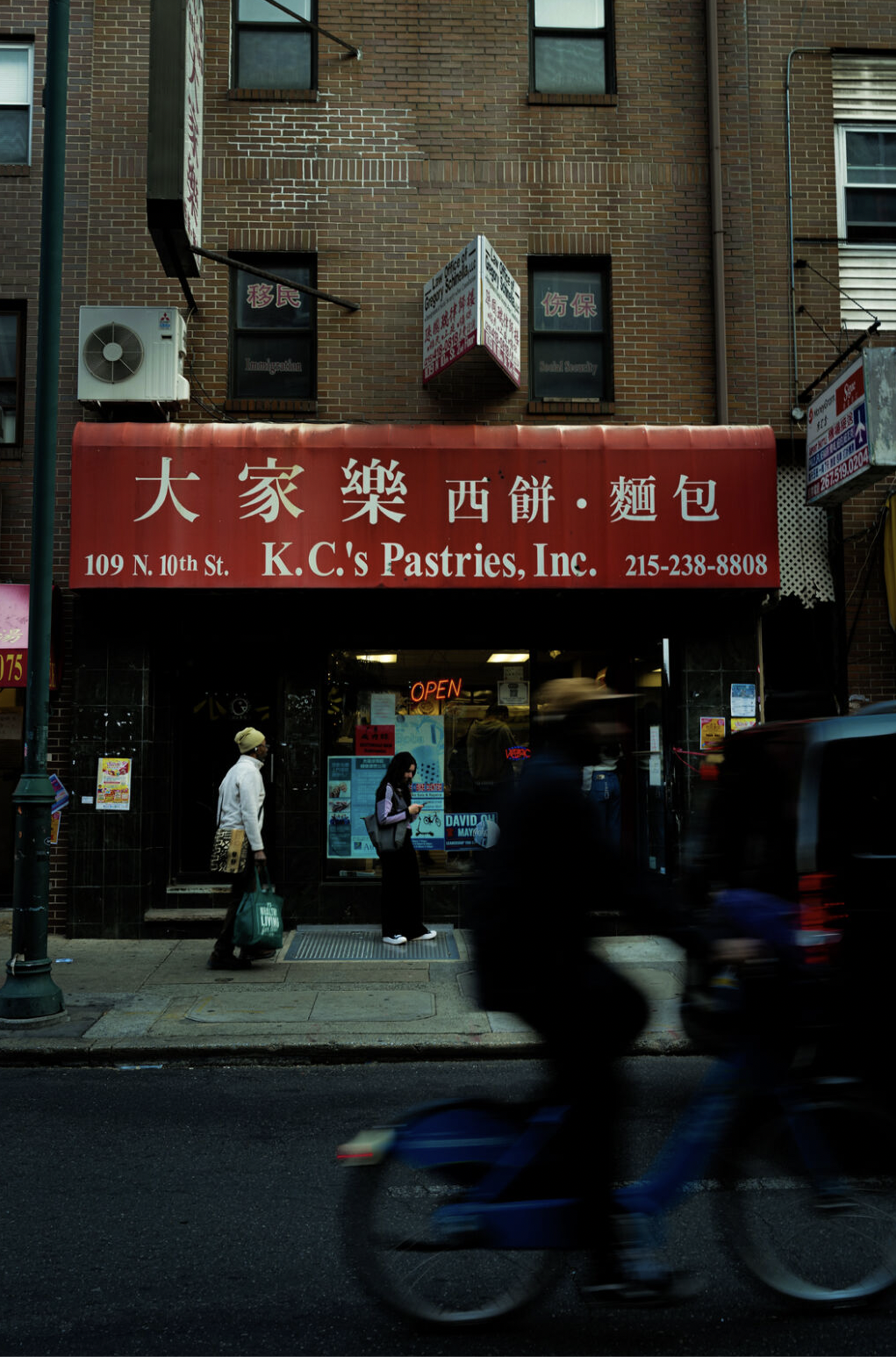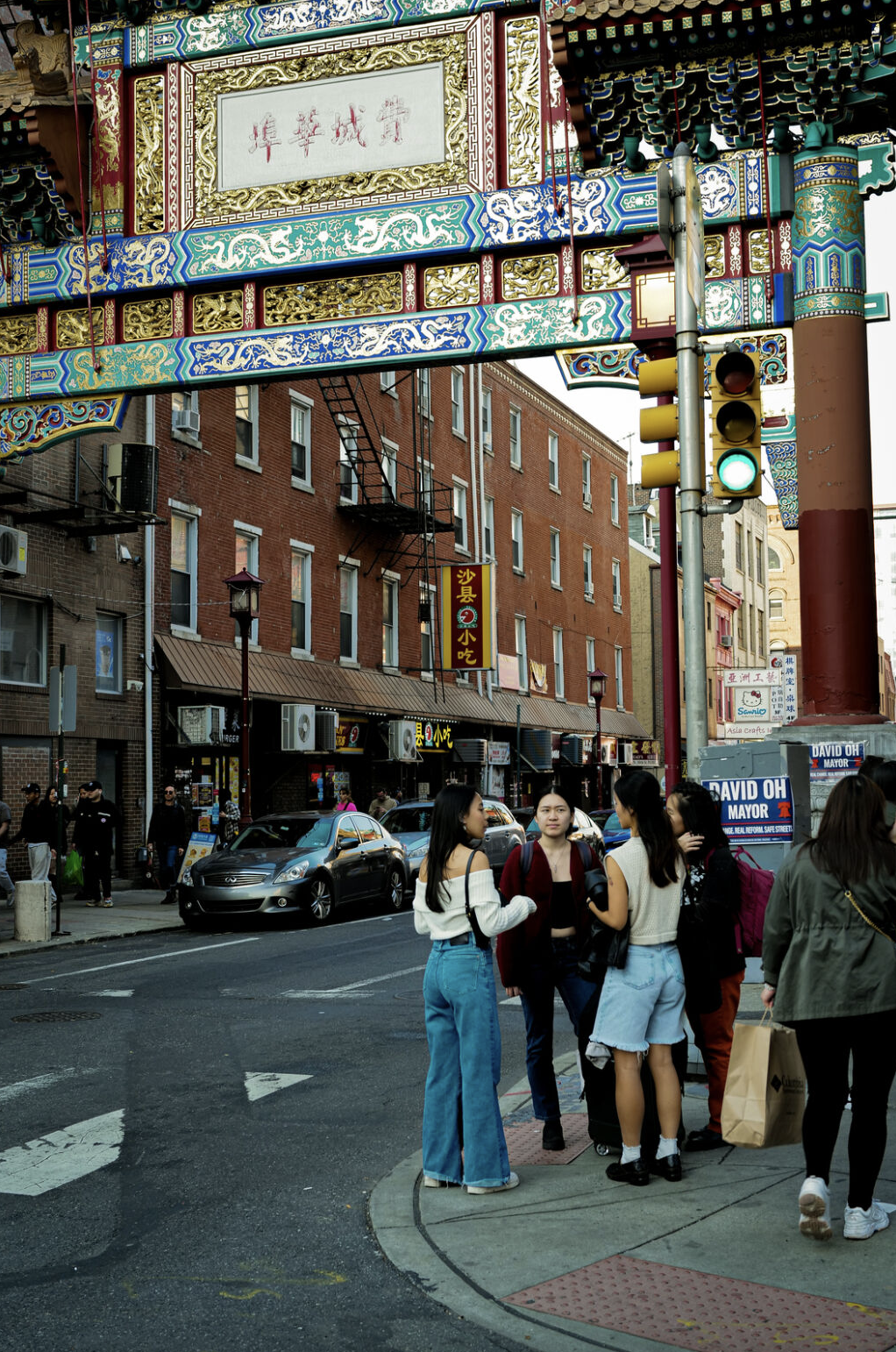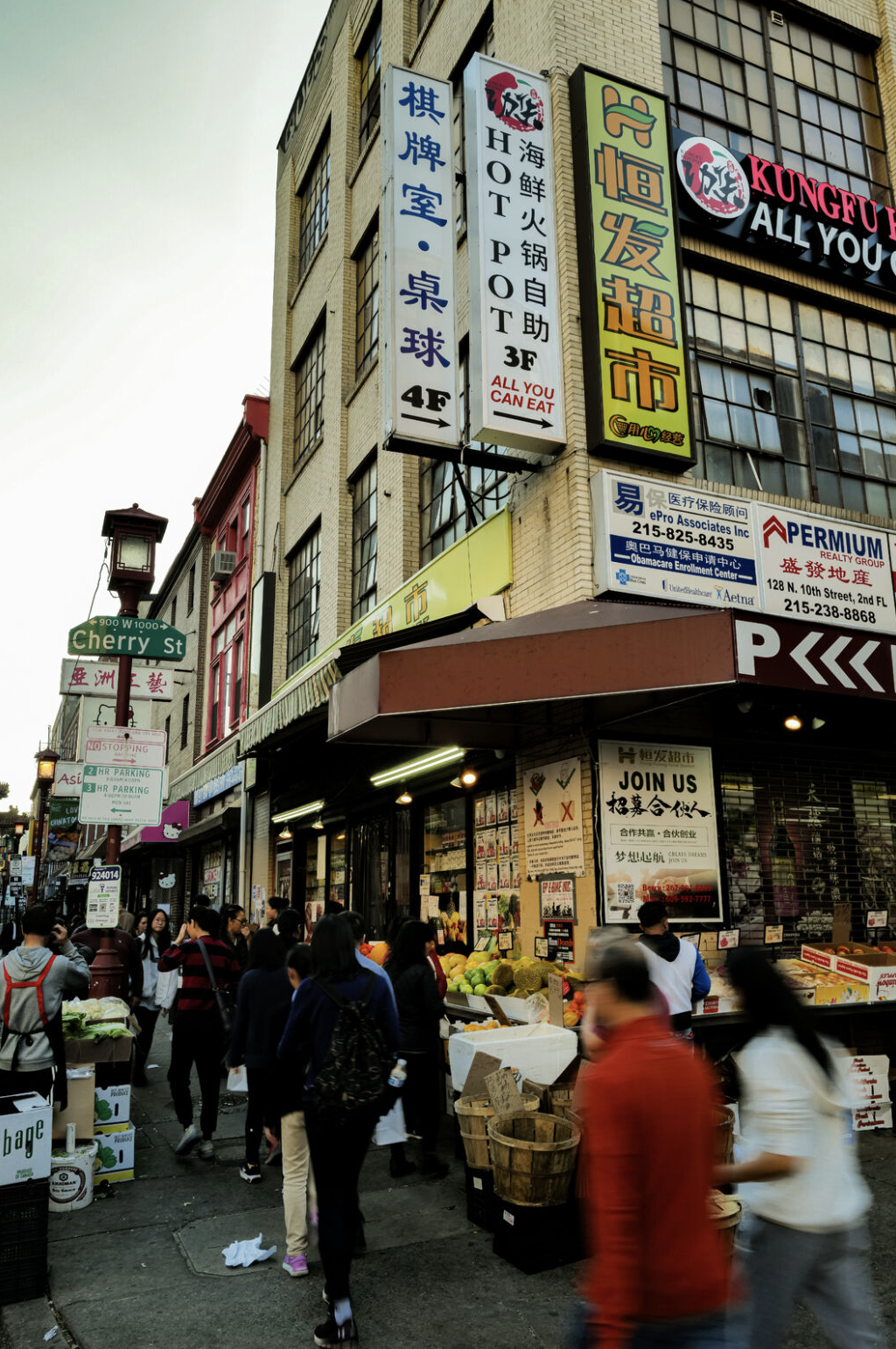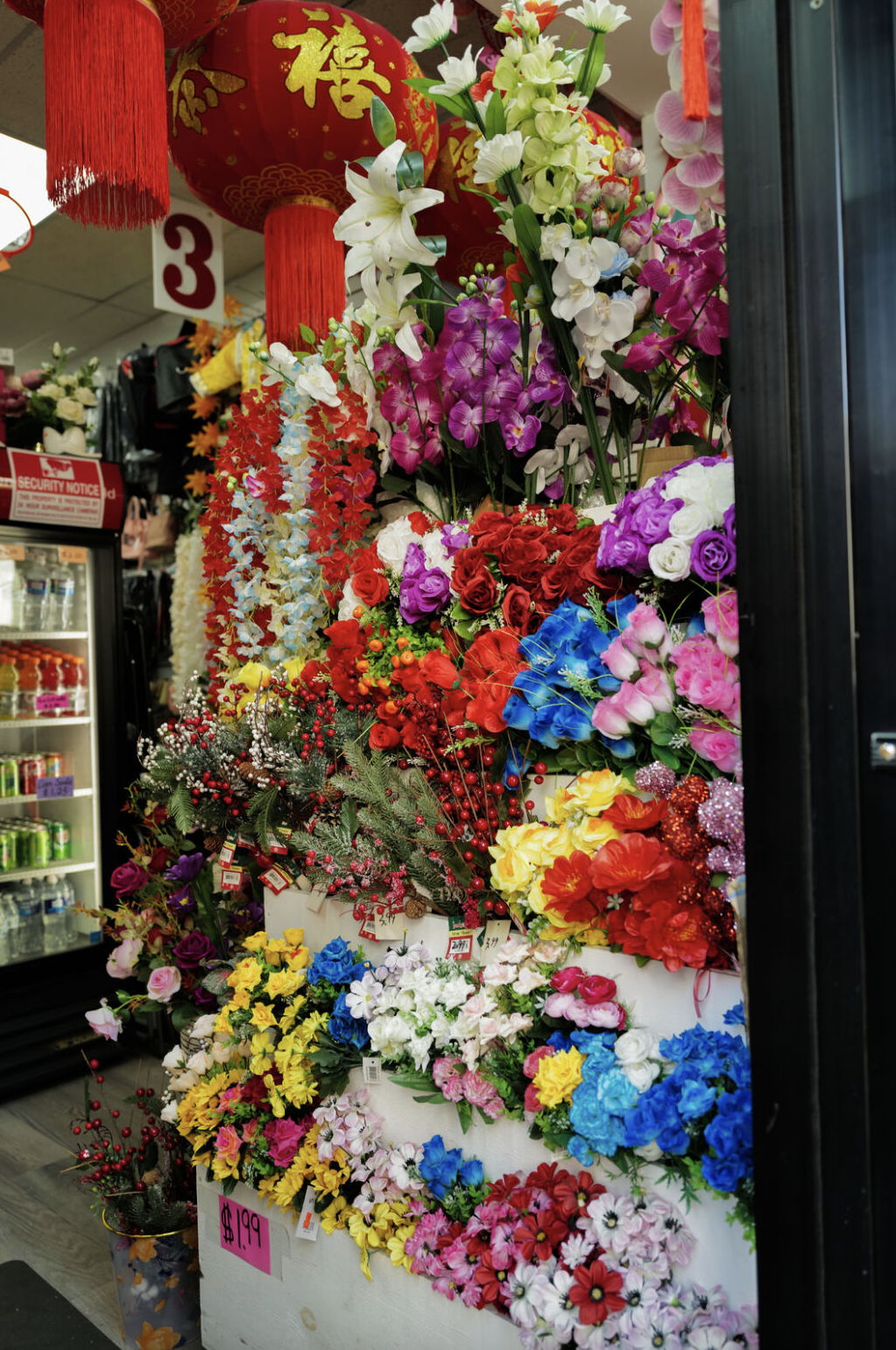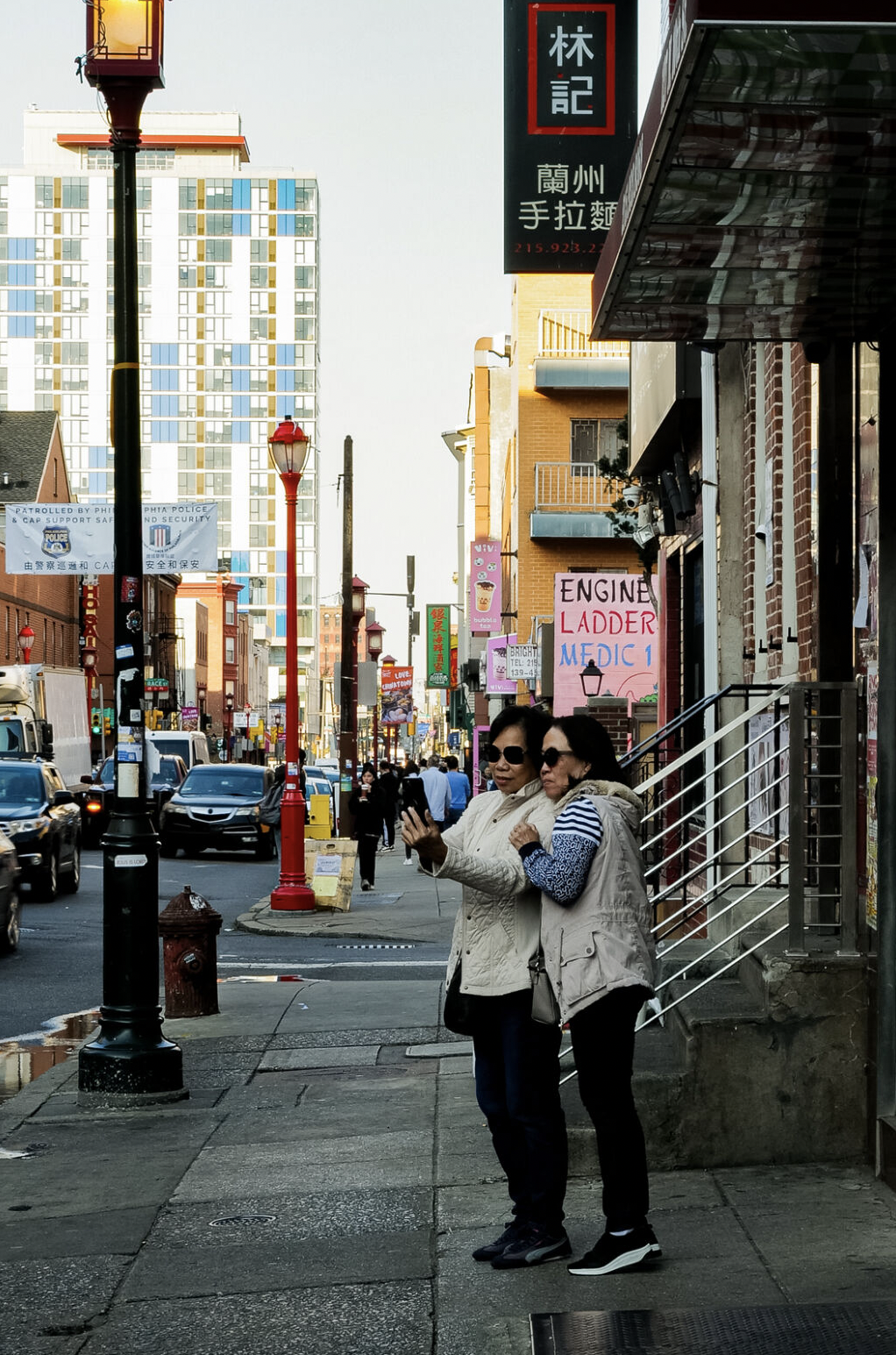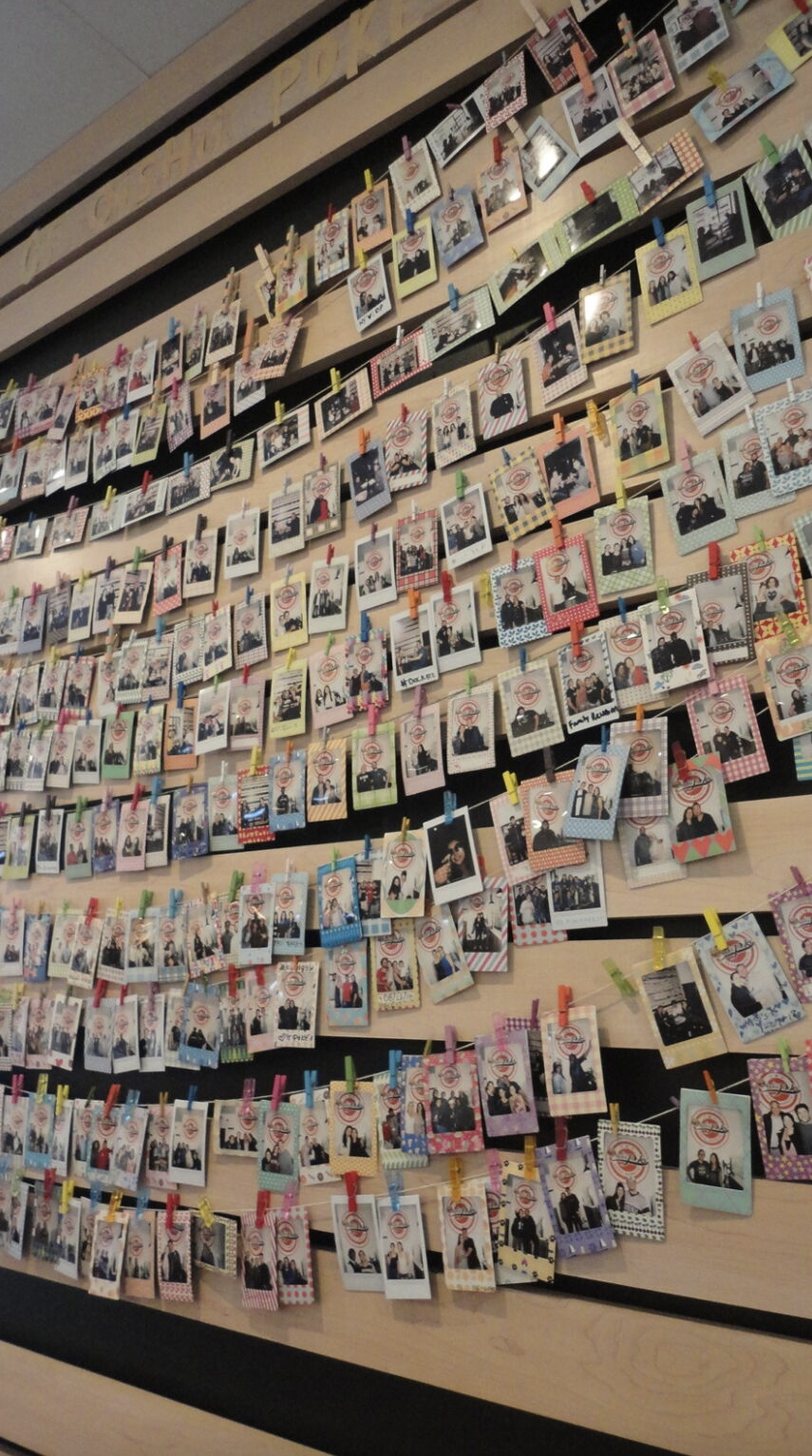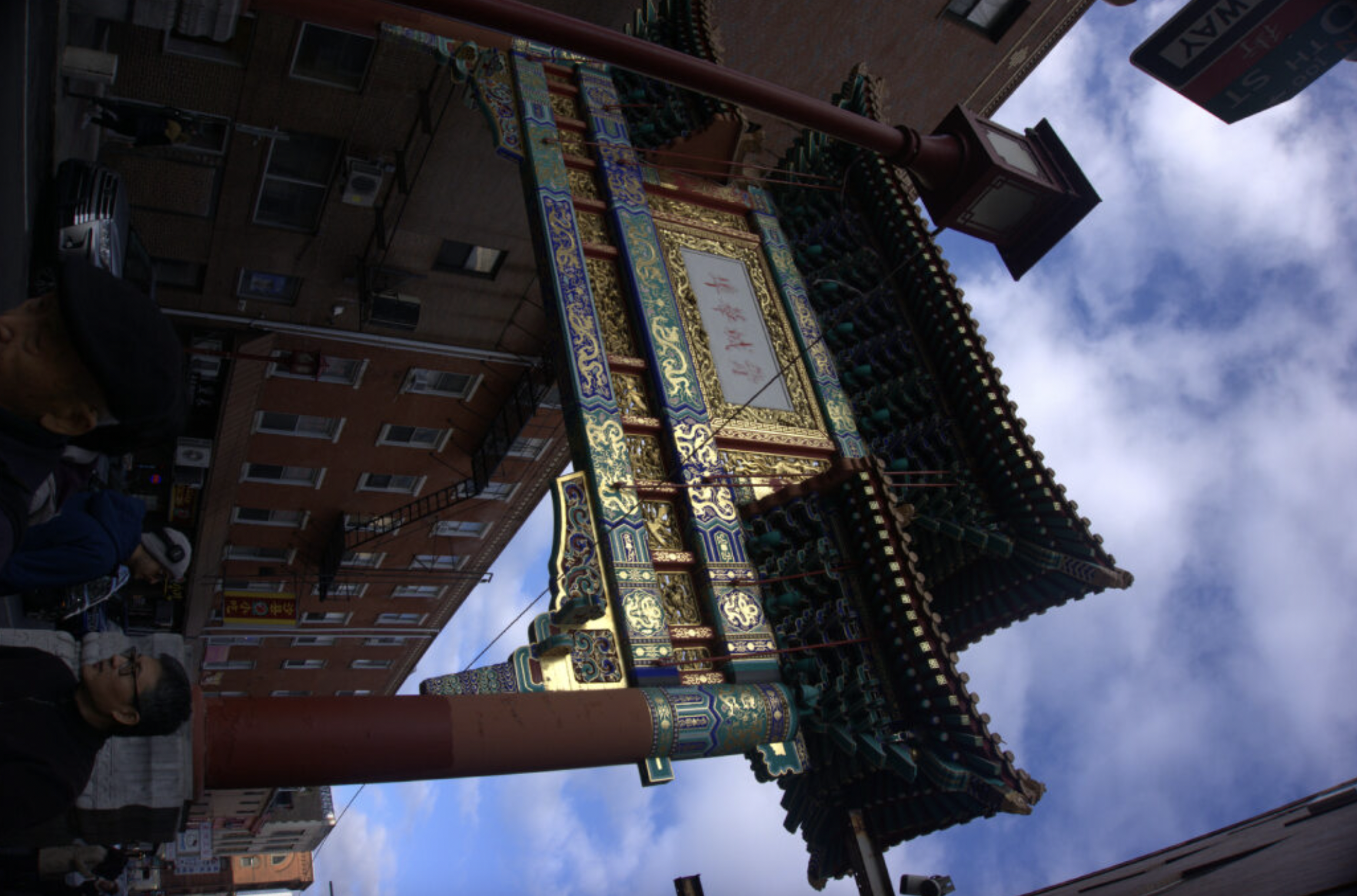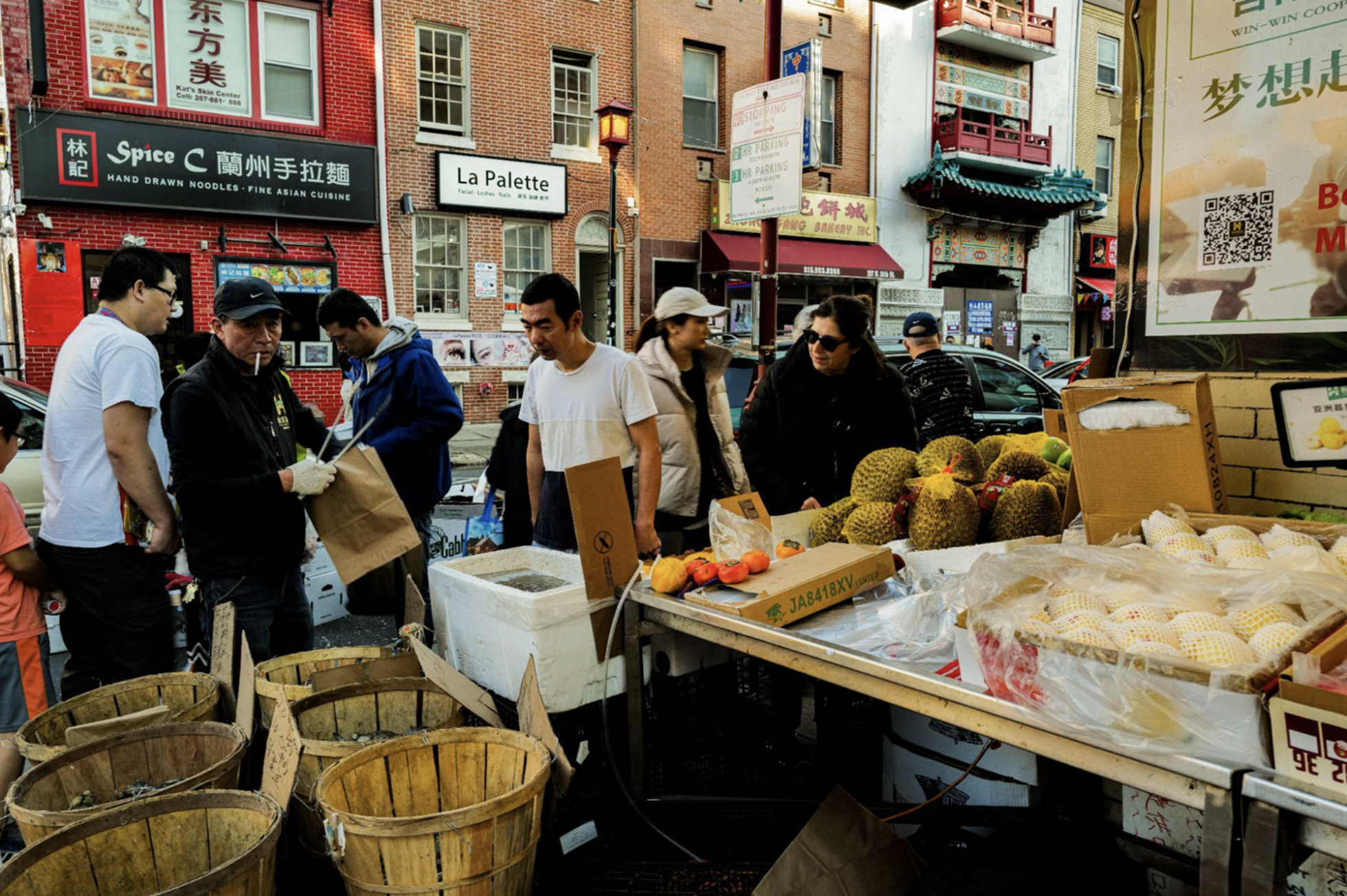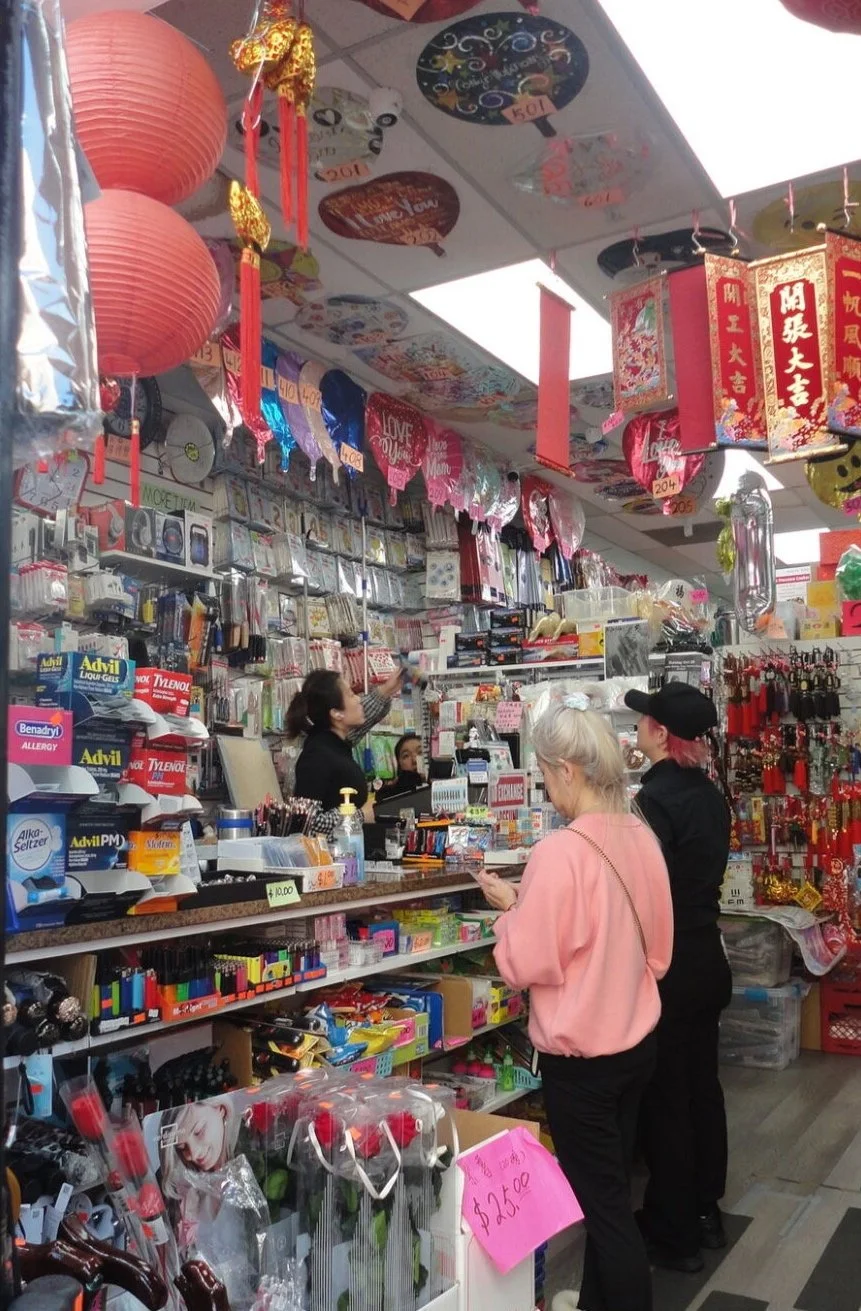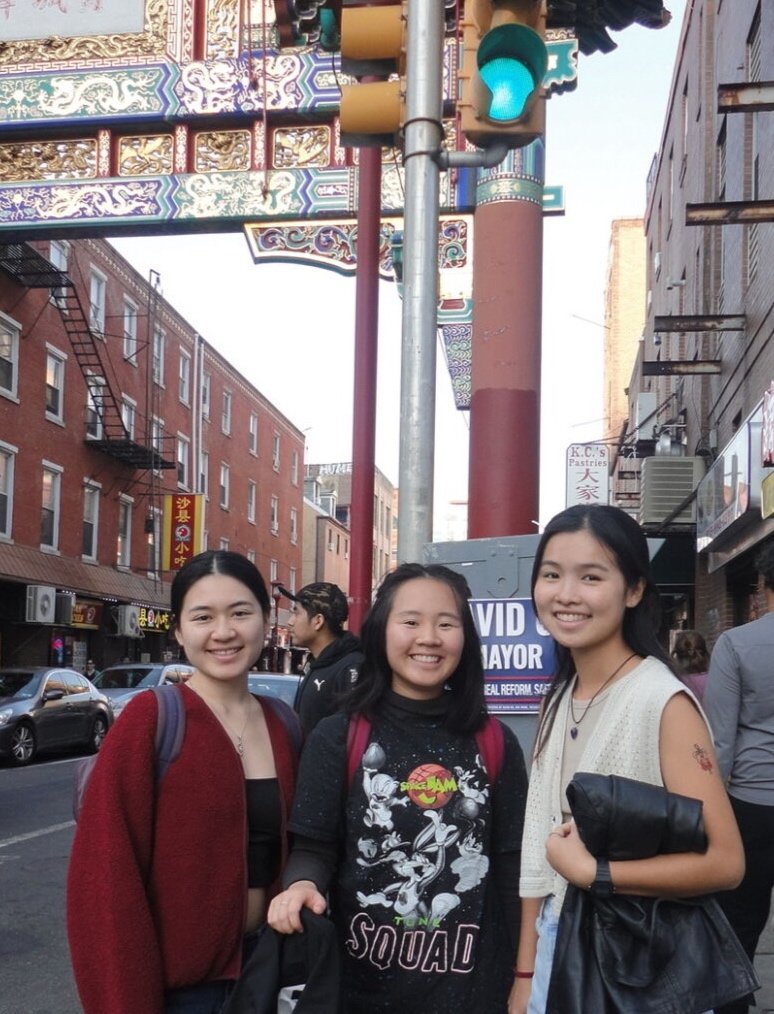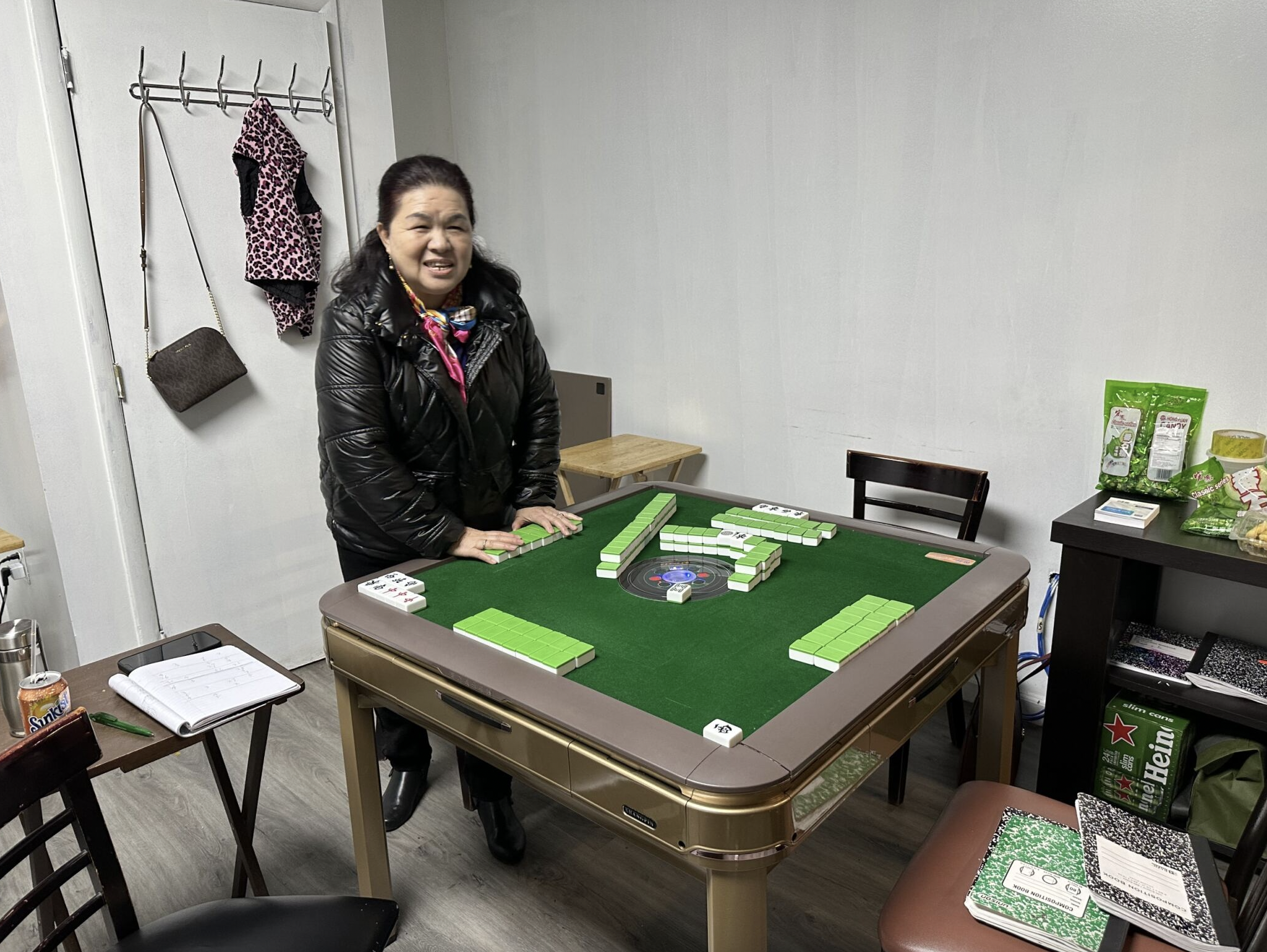A Love Letter to Philadelphia's Chinatown
BY Krysta Mendoza
Photography by Nicole Hong
Having moved thousands of miles from my hometown in sunny California, Philadelphia felt more like a foreign country than it did a place I would call home for the next four years. With its bustling cities, distinct accents, and unpredictable weather, the East Coast was a world away from the familiarity of palm trees and perpetual sunshine. Yet, amidst all of the unknown, a beacon of solace was waiting to be discovered - Philadelphia's Chinatown.
Although I come from a Filipino background, the bustling streets of Chinatown overwhelm me with their comforting familiarity. Red and green shop signs adorn mom-and-pop businesses, dim sum and roasted duck aromas, and grannies lining the streets with shopping carts and puffer coats. It all transports me back to the vibrant streets of Los Angeles' Chinatown, where I had spent countless weekends with my family.
Before I knew it, Chinatown became more than just a place to find my favorite Asian snacks and ingredients. It transformed into a sanctuary, a place where I could connect with my roots and fellow Asian Americans who understood my journey. It was a place where the clashing worlds of my West Coast past and my East Coast present harmonized, creating a sense of belonging in a city that had once felt so foreign.
With over 150 years of history, Philadelphia's Chinatown has been a mecca for the city's Asian and Pacific Islander communities. Established in the 1870s, it is one of the oldest neighborhoods in the city. I looked to Chinatown to investigate the meaning of community and how even "outsiders" like me could feel solidarity with the neighborhood.
Customers shop the produce selection outside of Heng Fa Food Market.
Nestled at the entrance of Chinatown, just a few steps away from the iconic Friendship Gate, the unassuming "Huge Family Mart" (44 N 10th St) beckons visitors with its eclectic assortment of Asian household essentials. From stationery to bath ladles, and yes, even back scratchers, the small gift shop is almost like a museum of cultural artifacts that define the Asian American experience. Talking with Sunny, the proprietor of Huge Family Mart, I learned the story behind this distinctive establishment that opened its doors two years ago. In our conversation, Sunny said, "Our store is only two years old, but I treat my customers like my family. They support us and Chinatown, so I feel grateful to have people come to my store." Here, within the intimate space of the shop, the spirit of community thrives, transcending its brief existence through seemingly mundane interactions. Despite its relatively short existence, Huge Family Mart has become a haven of familial warmth that makes every customer feel like a cherished member of an extended family under Sunny's attentive care.
Sunny, 32, checking out customers at Huge Family Mart (44 N 10th St)
Beck, a 21-year-old teacher at a local charter school who was hugged by a student and their mother during our interview, expressed the significance of attachment to Chinatown. Originally from New York, she states, "I was able to see myself and my roots in Chinatown. I can only imagine what it was like for people who immigrated from Asia. I think it's important for people to have that sense of attachment, a place that is familiar and feels like home." These candid reflections underscore Chinatown's intrinsic role in offering a geographical location and a profound sense of familiarity and belonging. Chinatown is not merely a collection of streets and buildings but a living testament to the human need for connection and belonging. Each personal encounter and every shared embrace encapsulate the essence of forming meaningful connections and finding a place that truly feels like home.
Beck, 21, and her two friends pose under Chinatown's infamous Friendship Gate.
While I thought I had begun to grasp what was so special about Chinatown's community, my most recent trip exposed me to a little corner of Chinatown that remains hidden in plain sight. This tucked-away domain reveals itself only to those guided by insiders. To my luck, a close friend of mine, Nicole Li, and her mother guided me through what seemed like a secret hideaway. Through the side door of a massage parlor and up five flights of stairs, Nicole's Grandma, Yuzhen, waved at us eagerly from the top of the steps. "Do we look alike?" she asked as the three generations of women looked at me, beaming. After exchanging greetings, Yuzhen guided us around a studio space that had been turned into a senior center. The center first opened to provide space for elders in the community to gather, socialize with one another, play games like mahjong, and exercise. "Elderly people like me tend to feel more lonely. So, to have a space like this, I feel grateful," Yuzhen said.
The Senior Center has become a haven for the elderly residents who seek companionship and engagement. The room echoed with laughter as the elders engaged in conversation, fighting to have their voices heard while the karaoke machine blared in the background. Nicole's mother, who actively volunteers at the center, emphasized the importance of preserving the cultural heritage of older adults. "It's not just about providing space; it's about maintaining our traditions and creating a support system for our seniors," she explained. The Senior Center is kept alive by 60 - 70 elderly residents who collectively pay rent, maintain the physical space, and safeguard the elderly community of Chinatown.
Yuzhen, 64, excitedly points out her favorite mahjong table in the senior center.
As we concluded our tour, Yuzhen's pat on the back, reminiscent of my grandmother's gestures, served as a poignant reminder of Chinatown's familial warmth. Returning from the Senior Center to the bustling streets, I realized that this tight-knit community had not only welcomed me as an observer but also embraced me as an insider. Chinatown, with its rich history, diverse narratives, and hidden gems, has become a part of my personal story. For shop owners like Sunny and elderly residents like Yuzhen, Chinatown is more than a geographical location; it is a living testament to the deep and enduring meaning of community. It is a place where culture and tradition are preserved, diversity is celebrated, small businesses thrive, and a profound sense of belonging envelops all who visit. In Chinatown, you can find a microcosm of the Asian American experience, more so the human experience, and a celebration of the heritage that has shaped the lives of the individuals who call the community home.

